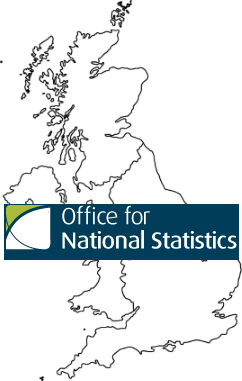Office for National Statistics estimates net migration down to just +34,000 due to Covid and Brexit
The latest migration statistical bulletin published today by the Office for National Statistics (ONS) reveals that a combination of coronavirus and Brexit led to a dramatic fall in net migration to the UK in the year ending December 2020.
 The ONS estimates that net migration in 2020 was just +34,000, down 88% compared with the estimated figure of +271,000 for 2019. It means the Conservative Party's abandoned commitment to cut net migration to less than 100,000 a year has finally been met. The target was introduced in the 2010 manifesto, but was effectively abandoned in 2018 after a repeated failure to meet it.
The ONS estimates that net migration in 2020 was just +34,000, down 88% compared with the estimated figure of +271,000 for 2019. It means the Conservative Party's abandoned commitment to cut net migration to less than 100,000 a year has finally been met. The target was introduced in the 2010 manifesto, but was effectively abandoned in 2018 after a repeated failure to meet it.
As the ONS notes, the estimated net migration figure for 2020 has a considerable range of uncertainty, with the possible figure ranging from -58,000 to +125,000.
Net migration for EU nationals in 2020 was estimated at -94,000, meaning more EU nationals left the UK last year than arrived.
The Migration Observatory at the University of Oxford said on Twitter that the changes compared to recent years were "extraordinary".
The full list of the key points from today's migration statistical bulletin is as follows:
- Net migration fell considerably in 2020, with an estimated 34,000 more people immigrating than emigrating (uncertainty range: negative 58,000 to 125,000); this is an 88% decrease compared with the 2019 figure of 271,000.
- Immigration was much lower in 2020 than in previous years, likely caused by a combination of the coronavirus (COVID-19) pandemic and Brexit; an estimated 268,000 people (uncertainty range: 233,000 to 303,000) immigrated to the UK during 2020, compared with 592,000 people in 2019.
- Emigration also fell in 2020, but to a lesser extent than for immigration; an estimated 234,000 people (uncertainty range: 150,000 to 319,000) left the UK to live abroad in 2020, compared with 300,000 people in 2019.
- Net migration in 2020 for EU nationals was negative, with 94,000 more EU nationals estimated to have left the UK than to have arrived (uncertainty range: negative 180,000 to negative 8,000).
Jay Lindop, Director of the ONS's Centre for International Migration, said: "Although there is no evidence of an exodus from the UK in 2020, global travel restrictions meant the movement of people was limited, with all data sources suggesting migration fell to the lowest level seen for many years. These are our best current estimates for international migration over this period, however they are modelled figures based on experimental research and subject to a high level of uncertainty."
Meanwhile, the Home Office's latest immigration statistics published today show that asylum claims have now increased 18% this year compared to the same period last year.
The Home Office said: "There were 37,562 asylum applications (main applicants only) in the UK in the year ending September 2021, 18% more than the previous year. This is higher than at the peak of the European Migration crisis in 2015-16 (36,546 applications) and the highest number of applications since the year ending June 2004."
Earlier statistics showed that there had been no increase, and even a slight fall, in asylum claims despite the increasing media and political attention over asylum seekers crossing the English Channel in small boats.
The backlog of asylum claims awaiting a decision has increased significantly, with the Home Office noting: "At the end of September 2021, there were 67,547 cases (relating to 83,733 people) awaiting an initial decision (41% higher than the previous year). The number of cases awaiting an initial decision has shown an overall increase in the last ten years, and more rapidly since 2018."
Today's immigration statistics also reveal that visa numbers for skilled workers have recovered from the dip seen during the Covid-19 pandemic: "There were 205,528 work-related visas granted in the year ending September 2021 (including dependants). This was a 55% increase on the year ending September 2020, and 9% higher than in the year ending September 2019."
The statistics come a day after 27 people tragically died in the Channel when their dinghy sunk near the coast of Calais as they attempted the crossing to the UK. It is the deadliest single incident on record.
The United Nations High Commissioner for Refugees (UNHCR) said it was shocked and saddened by the heartbreaking news.
"Our thoughts are foremost with the family and friends of those who have lost their lives, and also with those involved in this tragic search and rescue mission," UNHCR posted on Twitter as news of the deaths broke.
The Refugee Council said: "We are all devastated by last night's news that 27 men, women and children tragically lost their lives whilst trying to reach safety in Britain. This is the worst humanitarian disaster connected to the Channel in recent times, and what is truly heart breaking is that it was both predictable and preventable.
"Behind every single person that needlessly lost their life last night will be a person who was looking for safety, for protection and who had hope of a new life that now will never be realised. Our thoughts are with the family members of those lost and for all our clients, staff, volunteers and supporters who stand in solidarity in mourning today."